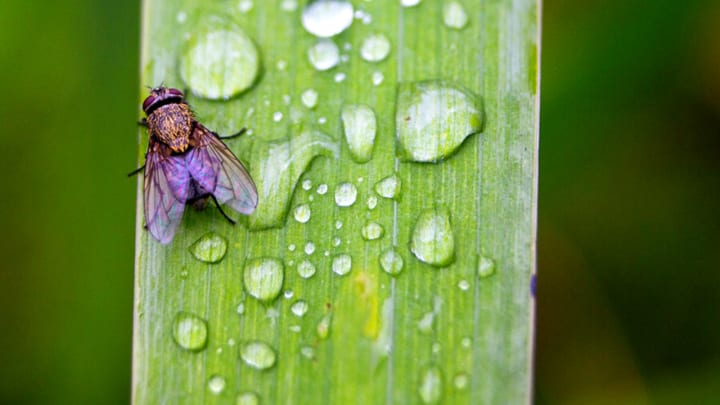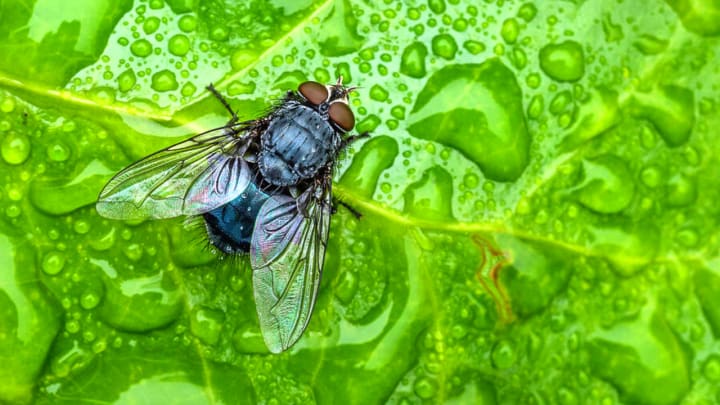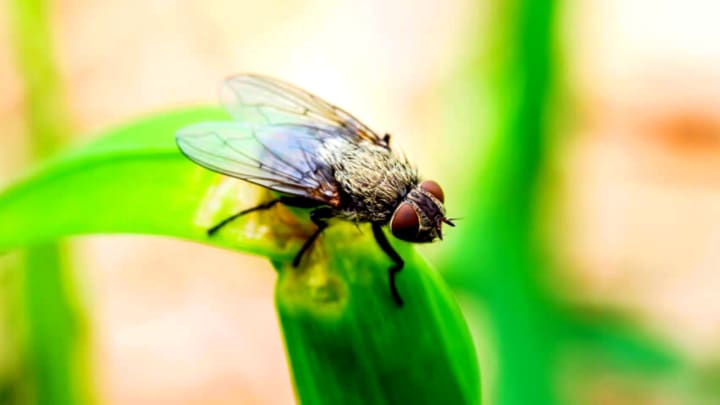Why Do Flies Bite When It's Going To Rain
Flies curiosity - Why are they so annoying before a rein?

Do you ever get that feeling when it's about to rain, and all of the sudden a fly buzzing around your head seems to become ten times more annoying? You're not alone.
For some reason, flies tend to be especially active when a storm is brewing, and many people wonder why they do this. Is it just coincidence, or is there something more to it? Turns out, the answer is a little bit of both.
Let's take a closer look at why flies bite when it's going to rain.
What Happens to Flies When It's Raining?
If you've ever been outside on a rainy day, you know that flies seem to be everywhere. They're drawn to the moisture, and they seem to be able to avoid getting hit by the raindrops.
But it turns out that the rain can actually knock them out of the air. Furthermore, due to the size of the fly, water can adhere to it and drown it. Flies breathe through spiracles on their bodies, and when a water droplet sticks to the fly, it covers the spiracles, causing it to drown.

This is why they seek shelter on the undersides of surfaces such as leaves or anywhere dark until the rain stops.
Why Do Flies Bite When It's Going To Rain
For many of us, the sight of a fly buzzing around is enough to ruin our day. But what would you say if I told you that these pesky little creatures could actually be used to predict the weather? That's right - it turns out that flies have a rather unique way of sensing when a storm is on the horizon.
As it turns out, there's a scientific explanation for this phenomenon. Here's how it works: as barometric pressure drops in the atmosphere, flies become more active. This is because they are seeking warmer air to compensate for the drop in temperature.
However, as they become more active, they also become more aggressive. This is why you might notice flies biting more often just before it rains.
So be aware that next time you see a fly buzzing around your head, take cover-it might just be the harbinger of a storm.
Does Rain Hurt Flies?
When the weather takes a turn for the worse, you're not the only one who seeks shelter from the cold and wet. Many flies and other insects go into hiding when the temperature drops or rain begins to fall.
That's because water can weigh them down, making it more difficult for them to fly. In addition, cold weather can make their muscles slower and less able to support their wings. And if their wings do get wet, rain can damage them, making it even harder for the insects to take flight.

So next time you're feeling sorry for yourself because you have to hunker down indoors, remember that you're not alone - many creatures are doing the same thing. But at least you don't have to worry about your wings getting soaked!
Where Do Flies Go When It Gets Cold?
When Old Man Winter starts to rear his ugly head, people aren't the only ones who start looking for a cozy place to hunker down.
Flies are also cold-blooded creatures, and as the temperature drops, they start looking for a warm spot to ride out the winter. But where do they go? Some scientists believe that flies may spend the winter in protected areas such as caves or hollow trees.
Others believe that they may burrow into the ground, where they can remain inactive until springtime. However, the most likely explanation is that flies simply congregate in large numbers in places where it doesn't get too cold.
Can Flies Fly With Wet Wings?
If you've ever gone for a swim on a hot summer day, you know how frustrating it is to try and dry off afterward. Your clothes feel heavy and cling to your skin, and it seems like it takes forever to get completely dry.
Now imagine how frustrating that would be if you had to dry off with wings that were twice the size of your body. That's the reality for flies, who must keep their wings clean and dry at all times in order to stay airborne.

Not only do wet wings make it difficult to fly, but they can also hinder a fly's ability to find a mate.
Flies use their wing scales to reflect light in a particular way that helps them communicate with other flies over long distances. If water gets on the wings and dries, it can stain them, making it harder for flies to send out the right signal.
Summary
So the next time you're out and about, and hear that telltale buzzing sound followed by a sharp pain on your arm, don't worry - you're not going crazy. You've just been warned of an incoming storm!






Comments
There are no comments for this story
Be the first to respond and start the conversation.